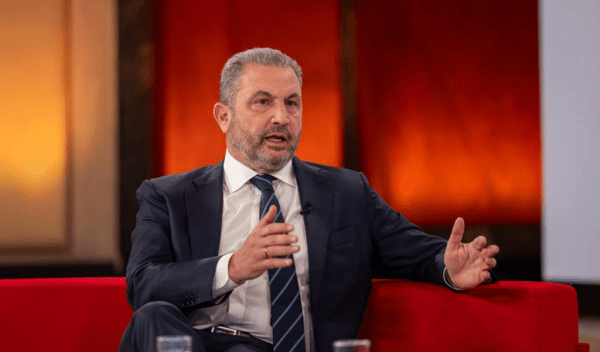The fact that players of the Serbian national football team revolted in the middle of the Mundial against their coach, Mladen Krstajic, obviously was not news to anyone, as all the players had a single point of reference, the controversial agent Fali Ramadani, the man who found himself in the eye of the storm due to this affair.
The fact that the Football Association of Serbia broke off with players with whom Ramadani is working (including Luka Milivojevic, who had a stint in Greece), is the smallest problem for the Serbian agent.
His problems are greater, as the Serbian state has decided to audit his finances and to shed light on the darker points in his career. The probes by the judiciary and the finance ministry (over tax issues) are ongoing, and have been prioritised.
The controversial tactics of Ramadani, his extremely bad choices, and his desire to absolutely “control” the players with whom he works, led to his being shunned from Greece, and more specifically by Olympiacos FC, which severed all cooperation with him. The Piraeus football club was saddled with Besnik Hasi and all the players chosen by the Kosovar football manager, with the well-known disastrous results. The last link that connected Ramadani with the Red and Whites was Marko Marin, and after the farewell of the Slav-German midfielder, the doors of Olympiacos were shut for good.
This was due not only to the catastrophic collaboration with Hasi and the choice of players with football value but with an egregious character. It was also because Ramadani fueled and applauded the unacceptable behavior of certain players. In this, he did not limit himself to foreign players. He also had a negative influence on certain young Greek players, such as Dimitris Nikolaou, who suddenly altered their behavior. Young men who were bred by Olympiacos, who were afforded great care, and who became football players within the walls of Renti, were suddenly sidelined because they chose a bad advisor-agent.
His collaborators in Greece attempted to open channels of communication with Greek teams, but teams were wary of approaching this particular manager.
The problems, which have snowballed, are not limited to Greece and Serbia. In Belgium, a country in which Ramadani has many players, there is an ongoing probe of the Mouscron affair, in which Ramadani and Pinhas Zahavi were implicated some years back.
Clearly, all of the above, from the vendetta with his country’s football association to the dark affairs in which he plays a leading role, have rendered him a toxic agent for football.





